Lost Patrol, The (1934)
“I’ll tell you what I know: nothing. I don’t know where we are, I don’t know where we’re going.”
|
Synopsis: |
|
Genres, Themes, Actors, and Directors:
Response to Peary’s Review: He notes that “these themes are most evident in [Ford’s] westerns” and that this film is “very similar to Stagecoach in that it also intermingles dialogue scenes with sequences that rely strictly on visuals and music (Max Steiner won an Oscar) and recall the silent cinema.” He calls out the “strong characterizations, especially by Victor McLaglen as the sergeant” (McLaglen has never been sexier): … “and Boris Karloff as a skinny religious fanatic who goes insane in the intense heat” (though Karloff overplays his role): Ford builds tremendous tension by not showing the shooters until the very end; bullets seem to come literally out of nowhere, ensuring we understand that this group is trapped between a rock and a hard place. A particularly heart-wrenching moment comes when a bi-plane lands nearby and the cheery British pilot is about to rescue them but barely makes it a few steps from his plane before being shot dead, despite vain attempts by the soldiers to prevent him from moving forth. Steiner’s score is used to particularly jarring effect in this sequence. Despite its utterly bleak setting and narrative, this film remains surprisingly engaging and is well worth a look. It would make a good double bill with Zoltan Korda’s WWII-era desert survival flick, Sahara (1943). Note: Peary points out that “in some ways [this film] predates Aguirre: The Wrath of God,” which is an intriguing if not entirely apt comparison. Redeeming Qualities and Moments:
Must See? Categories
Links: |
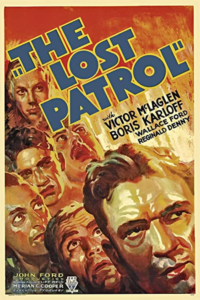
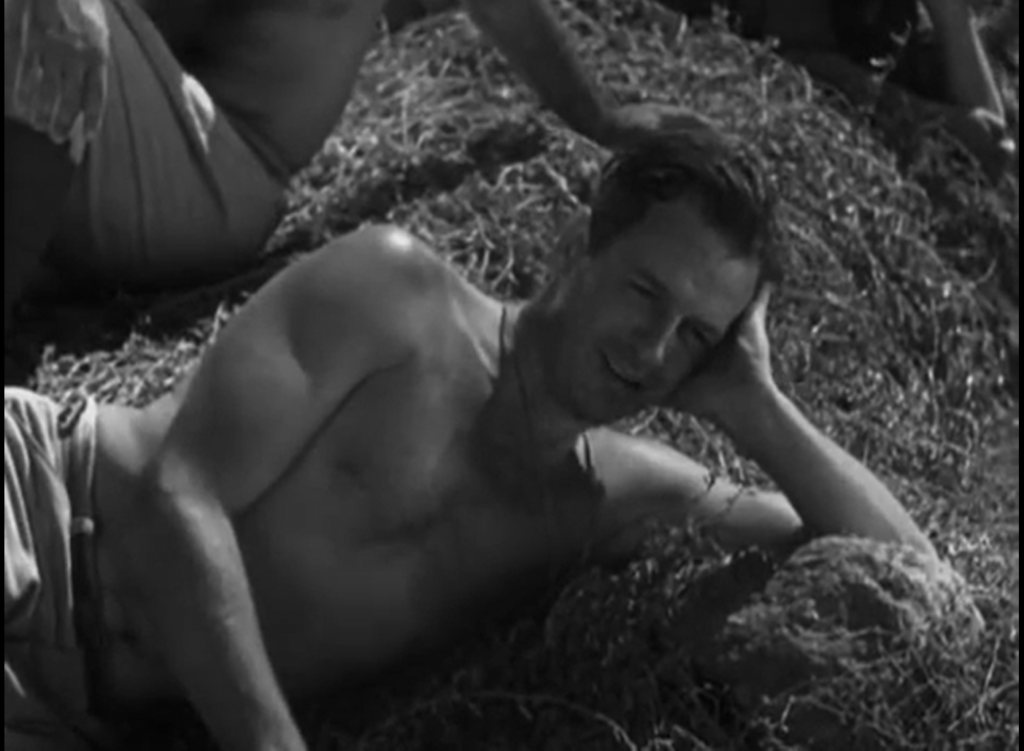
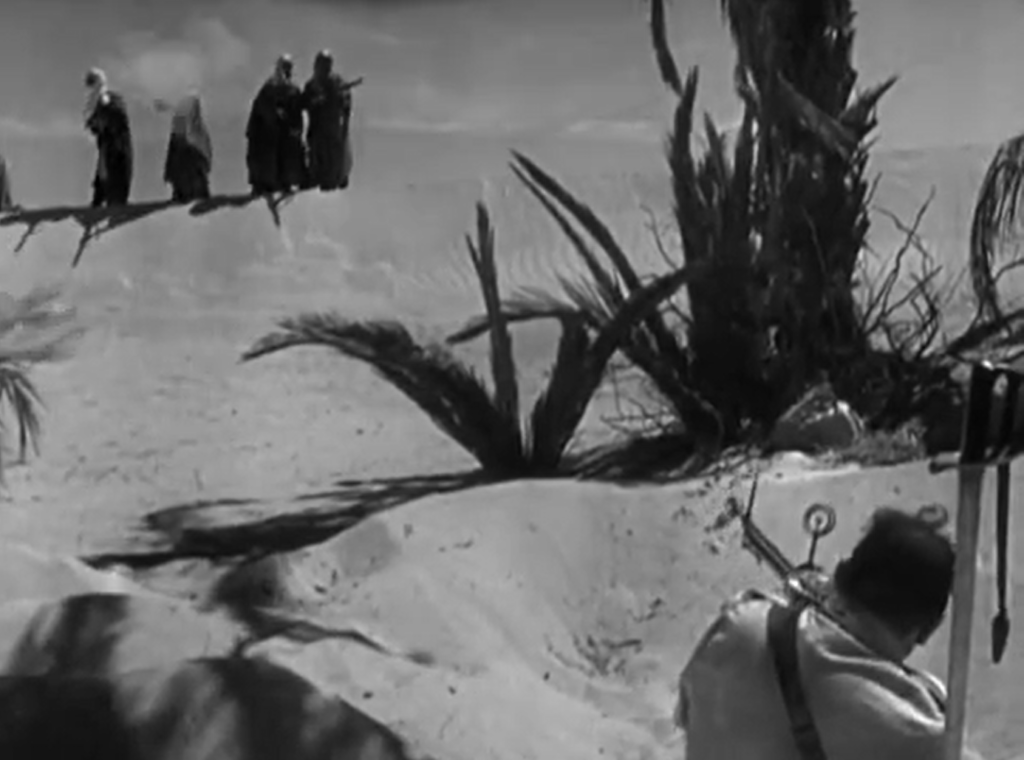
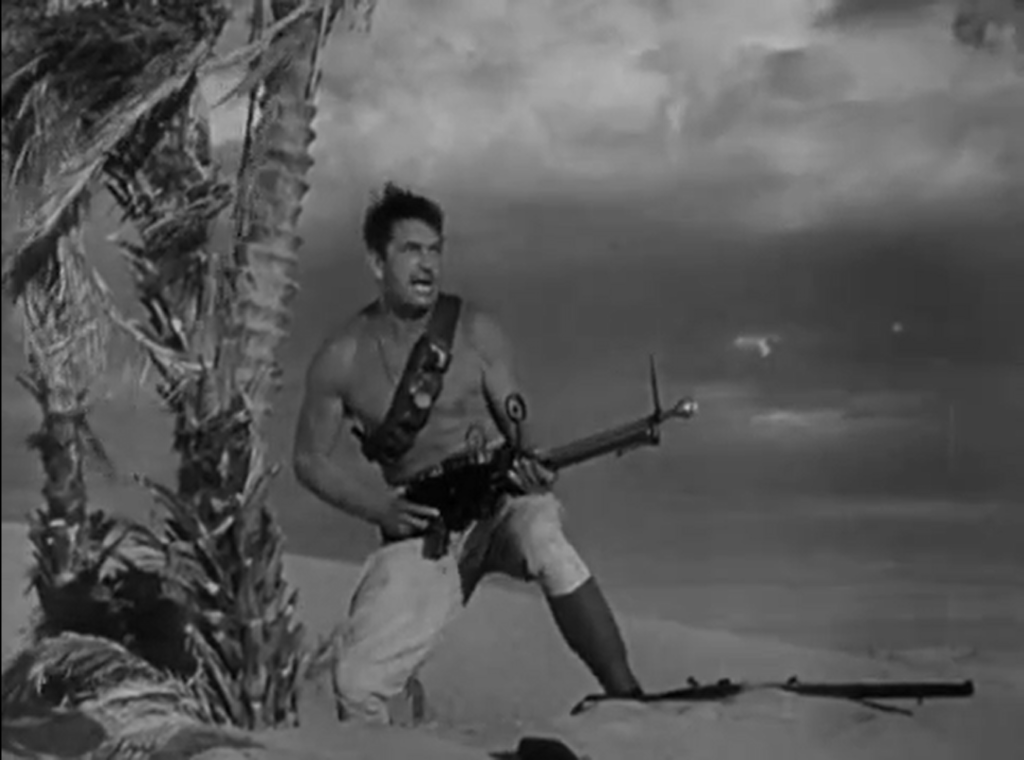
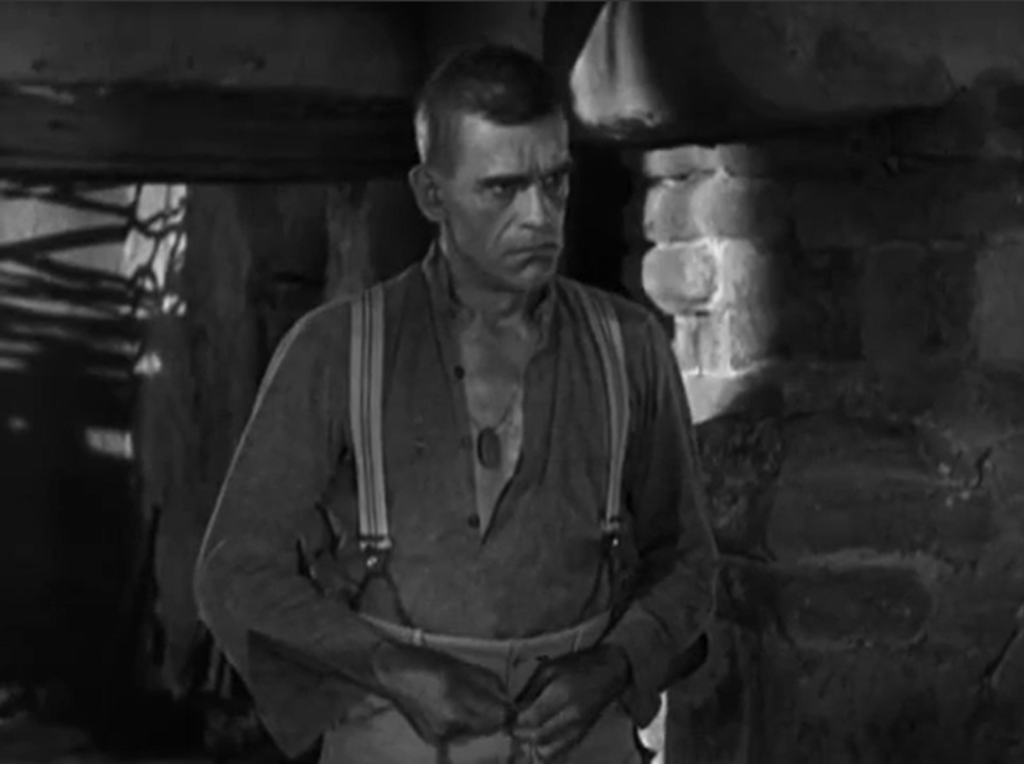
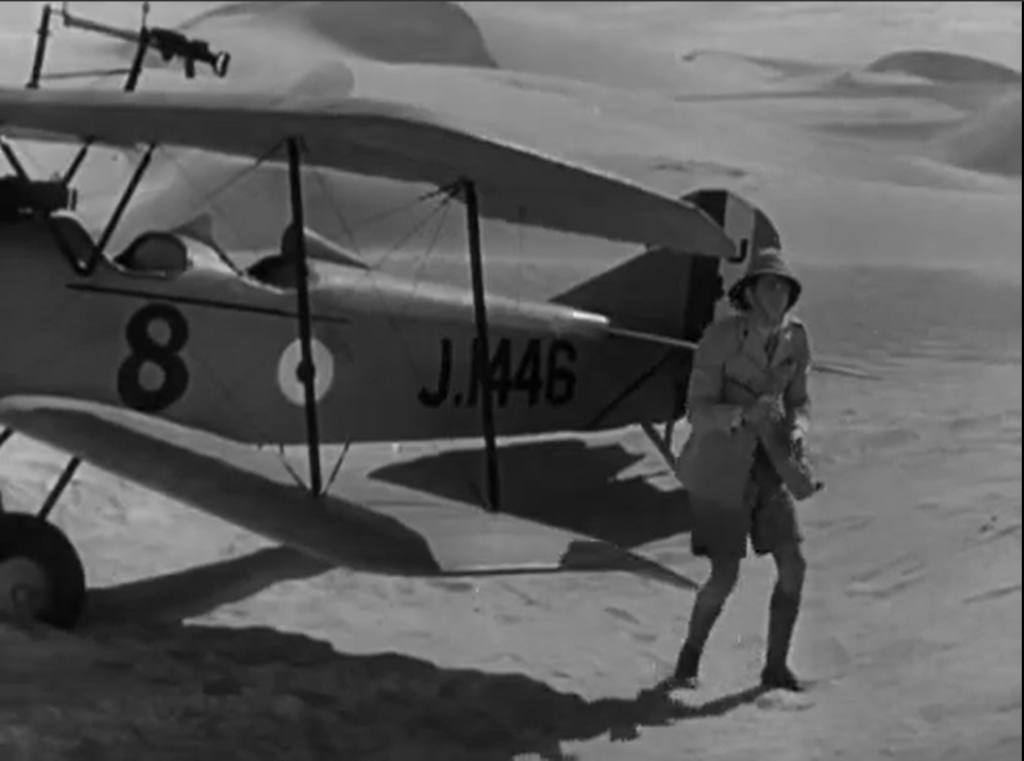
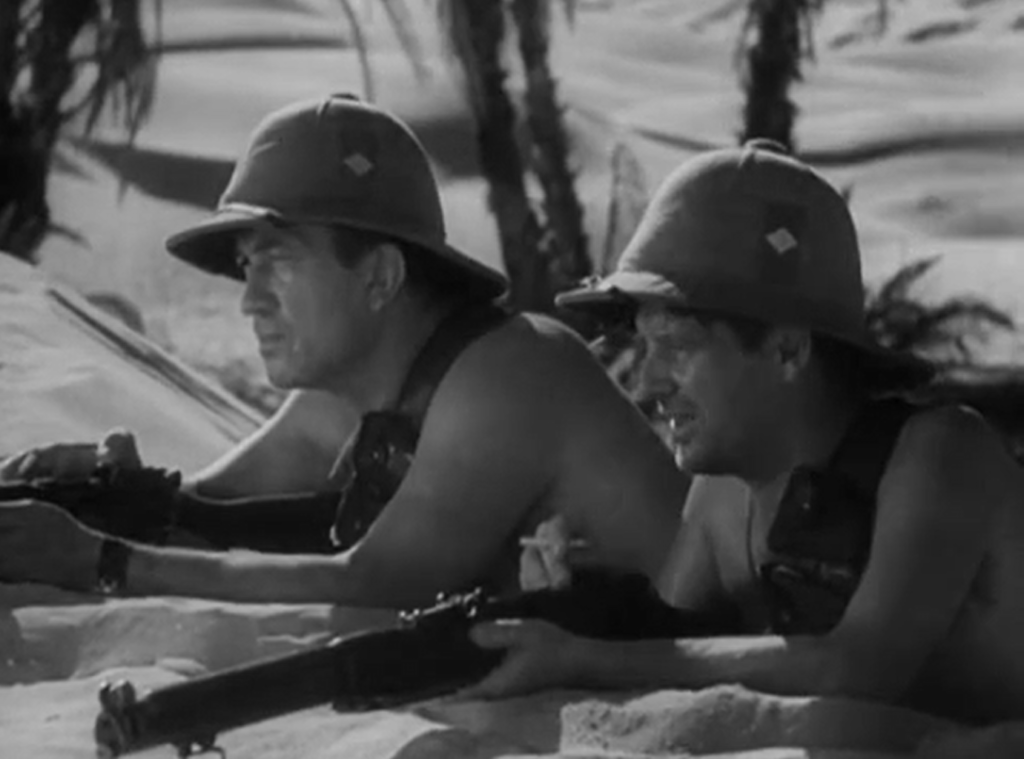
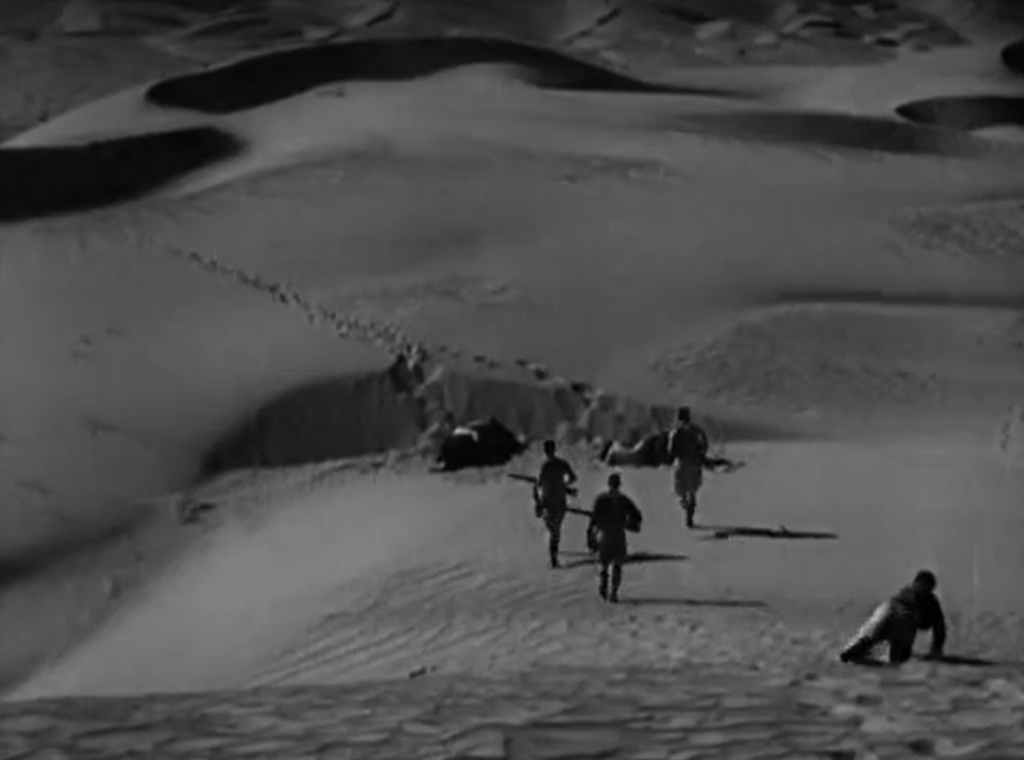
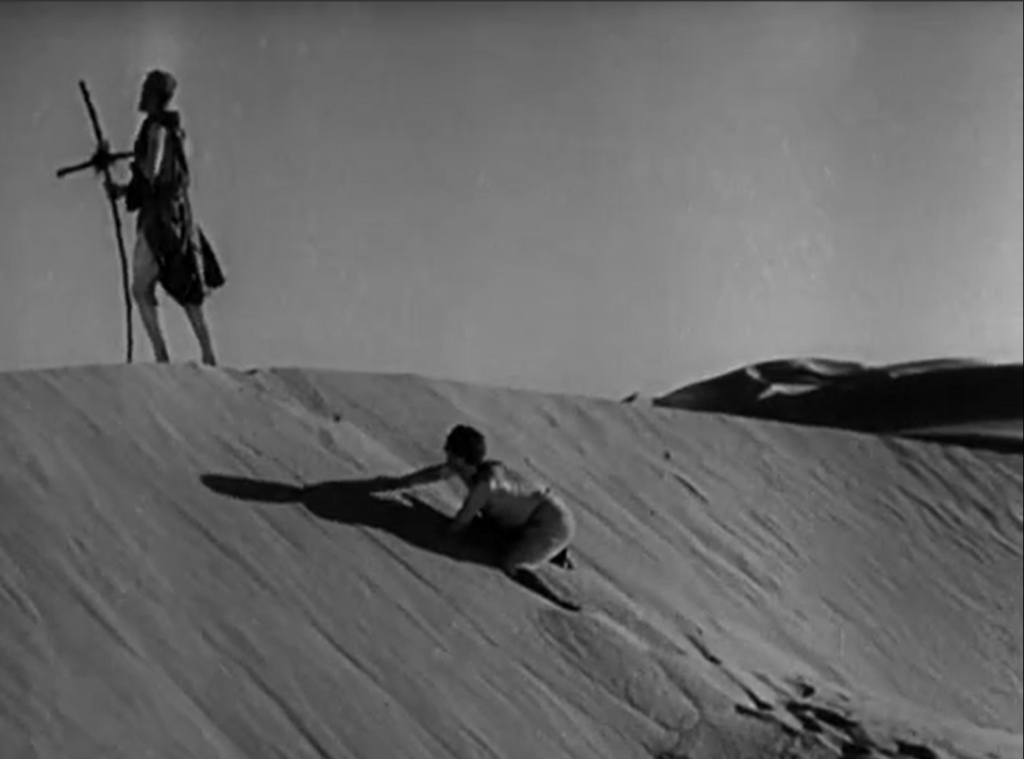
One thought on “Lost Patrol, The (1934)”
First viewing. Not must-see, though it’s an interesting early Ford flick.
Overall, Dudley Nichols’ script is a good, natural-sounding one – though I’ll admit to a feeling of frustration upon realizing that it looked like we were just going to watch the men being picked off one by one. And that that was the point.
Still, the last five minutes or so are well-handled. (And, yes, Karloff is allowed to overact – but his role is also tricky and a bit clumsy.)